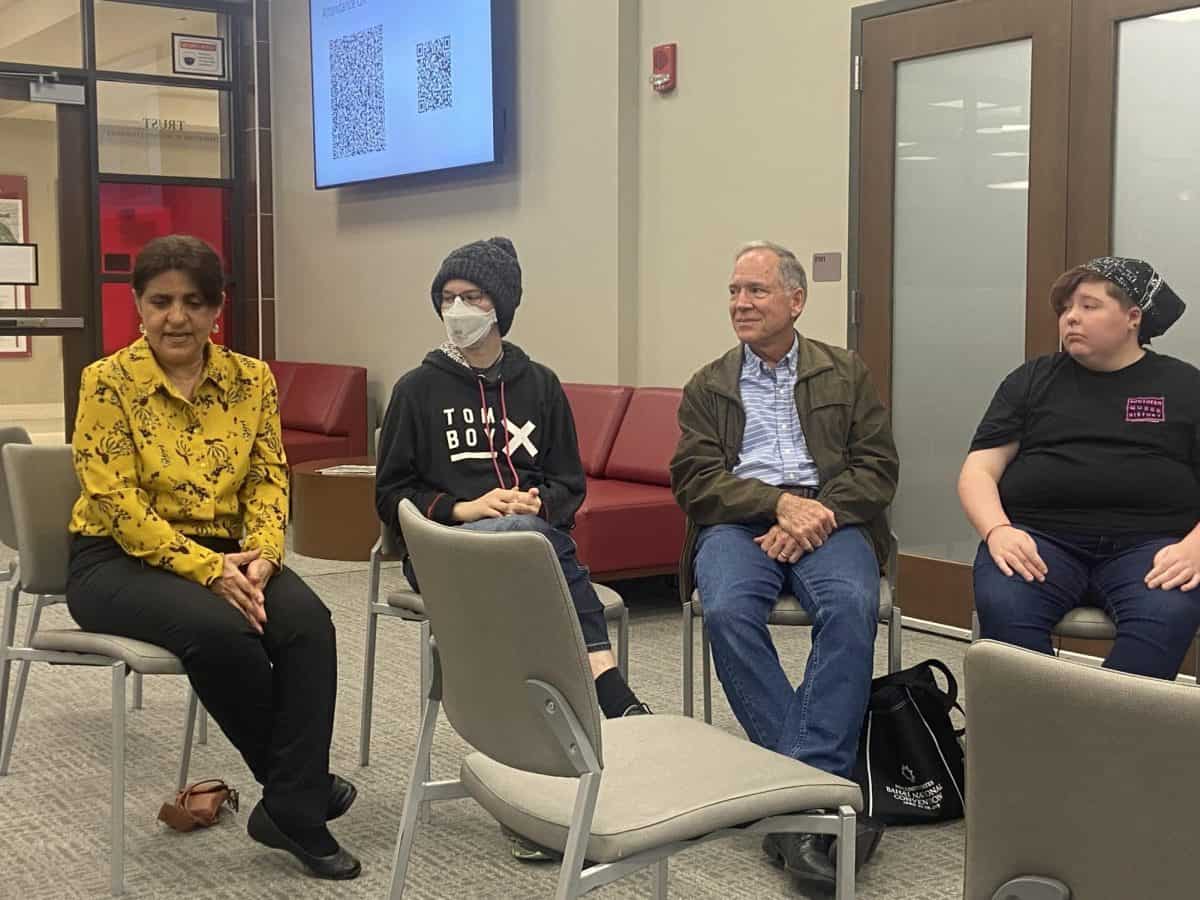The Social Work Association for Cultural Awareness hosted its Religious Awareness Day event in the Intercultural Diversity Center on Thursday, Nov. 9.
SWACA invited several religious groups on campus to represent themselves and teach others cultural aspects of their religion. For those in attendance it was an opportunity to learn more about the unique religious organizations and religious diversity that exists on campus.
The meeting began with a disclaimer that the event was purely educational and a chance to learn about the diversity that exists on the University campus. A panel of speakers, each one representing a different religion, spoke in turns about the foundations of their faith, their religious values, and their daily religious practices and traditional rituals.
The beliefs and religions represented at the SWACA event were atheism and agnosticism, Islam, paganism and the Baha’i faith. Other religious representatives were invited, such as the UA Vedic Society, Chabad Jewish Student Group and numerous Christian denominational groups, but were unable to attend.
Will Green, the president of SWACA and a senior majoring in social work, represented atheism and agnosticism because of their close association with each other. As an agnostic and atheist, he believes the existence of a god cannot be confirmed. Although Green does not profess belief in any god, he does believe in humanism.
Humanism is a movement that began during the Renaissance in Western Europe and is defined as “a doctrine, attitude, or way of life centered on human interests or values” according to Merriam-Webster. Green’s faith is placed in the potential for humans to act in one another’s best interests and a collective movement to solve societal issues.
“I’m happy with a sense of freedom. I want there to be more empathy in the world to reduce suffering,” Green said.
Omar Elnaham, a freshman majoring in electrical engineering, represented the Sunni branch of Islam. Elnaham spoke about the Five Pillars that are foundational to every Muslim: the declaration that Allah, which translates to “God” in Arabic, is the one, true God and Muhammad was the last Islamic prophet; five daily prayers said throughout the day in the direction of Mecca; annual fasting during the month of Ramadan; performing acts of charity; and a pilgrimage to Mecca at least once in a Muslim’s life.
The Quran is Islam’s holy text. For Elnaham, the value of a Muslim’s character centers around gratefulness. He said his devotion to Allah protects and guides him morally, allowing him to practice self-discipline.
Musharaf Alnaham, a sophomore majoring in business, is also a practicing Muslim, but he follows a less popular denomination. Sufism is a mystic denomination of Islam that values spiritual purity and a constant struggle to achieve a oneness with Allah. Alnaham taught about the two kinds of jihads in the Islamic faith. The lesser jihad is the Islamic laws of war in military struggles. The other is the greater jihad, the conquering of the ego and the self.
“The seeker is he who is in search of himself,” Alnaham said, quoting Sri Nisargadatta Maharaj.
Ashton Williams is a senior majoring in psychology and is president of the Pagan and Neo-Pagan Society on campus. Paganism is a broad religious term, originating from the Roman Empire to describe those who did not worship the Christian God. It most often refers to polytheistic religions in Western Europe that existed before the rise and takeover of Christianity. Williams, in particular, is a Hellenistic and Celtic Pagan.
Hellenism is the worship of the ancient Greek gods. Members of the Celtic pagan faith are called Druids and worship ancient Celtic gods such as Brighid, their goddess of the hearth. Many of the pagan faiths either do not have religious texts or they have been lost to history. For the most part, pagans and neo-pagans have an individual understanding of their religion.
Representing the Baha’i faith was Aghdas Alford, a retired professor and sixth-generation Baha’i. Baha’i was officially established in 1863 by a man named Baha’u’llah. It is one of the world’s youngest religions. Baha’is believe that God sends messengers to spread his divine word. Among the Baha’i prophets are “Abraham, Zoroaster, Moses, the Buddha, Krishna, Jesus Christ, Muhammad, the Bab, and the founder of the Baha’i Faith, Baha‘u’llah,” according to BahaiTeachings.org. The different prophets all teach the same message, and those messages share the same origin. Alford said the center of her religion is unity and the “oneness of man,” unified by the creator from whom all come.
“The well-being of mankind, its peace and security, are unattainable unless and until its unity is firmly established,” Alford said, quoting directly from the writings of Baha’u’llah.
Common themes shared during the event were their individual religious journeys and how it has aided them in their self-discovery. Whether inherited or discovered later in their lives, everyone who spoke at the event shared that their religion, or lack thereof, kept them virtuous, instilled them with their morals and values, helped them practice self-discipline, and gave them a sense of freedom, either from negative influences or to become the person they desired to be.
The University has many student religious organizations that provide safe spaces for students to worship how they choose. To find out more about religious student clubs and organizations, visit UA mySource.









